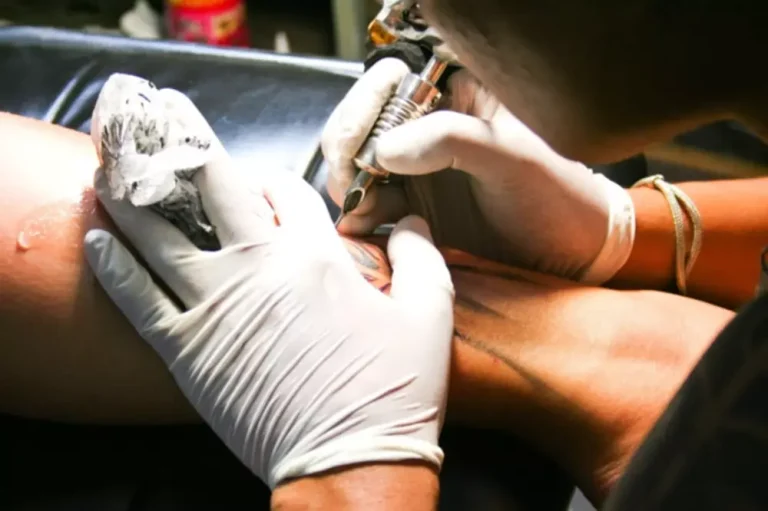A Guide to Managing Your Emotions in Recovery

When first introduced to a drug rehab program, it’s normal to feel lonely. The people and friends who enabled your substance abuse are suddenly gone. Therefore, it’s critical to find fellowship in recovery – to replace a destructive social network with a healthier, more positive one. While social media can offer a sense of connection, excessive use may lead to feelings of isolation and inadequacy.
Association between SIL and health status or outcomes

Focus on finding healthy ways to spend time rather than fixating on feelings of loneliness. You might consider helping other through volunteering or by adopting a pet–or even a house plant. Caring for a home, a garden, animals, or other people can add purpose and small joys to your life. The road to drug or alcohol addiction loneliness in recovery recovery is full of challenges, which include the need for physical and emotional isolation. This is true, especially when dealing with a unique combination of mental health and substance use disorders. At Waypoint Recovery Center, we provide a full continuum of care for men and women with substance use disorders.

Mindful Activities to Combat Loneliness:
It also increases your sense of self-worth when you’re part of a network that can help you, and you can also help them. Whether it’s a dog, cat, or even a fish, having a pet can provide a sense of purpose and reduce feelings of isolation. If you’re new in recovery, and experiencing intense loneliness, your sponsor can help. They answer questions and help you connect the dots between the advice you hear in AA/NA meetings and how to apply that advice in your daily life. If you’re curious about a finding a sponsor, ask anyone at an AA or NA meeting, click the link above, or talk to your therapist or counselor. Once you have a sponsor, they should be the first number on speed dial in your phone – and you should use that number often.

Limit Social Media Use
Regular check-ins with them will also give you the courage to avoid any triggers or temptations that could lead to relapse. To help you through your toughest moments while in isolation, this post offers five tips that could make all the difference in your journey toward healing. Ask yourself if what you are calling boredom is actually better than addictive behaviors and consequences. The discomfort of none — of nothing, to be without negative experiences — is good. If we find ourselves without new things or habits to fill our time and space, it means we’ve made great progress.
Unfortunately, far too many of us are not building real relationships with real people. As a result, as the predominance of social media rises, our ability to connect and build healthy relationships actually decreases. As Dr. Vivek Murthy calls for a national strategy to address the public health crisis of loneliness, we have the opportunity to rethink how we connect with one another.
Rediscover Yourself at Silicon Valley Recovery
- Loneliness can stifle this aspect of recovery by diminishing motivation and the desire to engage in new activities or pursue interests.
- The tools for dealing with loneliness are ones that you have to formulate yourself.
- By understanding the effects of loneliness and actively engaging in strategies to combat it, individuals can build a supportive network and find meaning and connection in their lives.
- Loneliness is defined as the gap between a person’s desire for social connection and their actual experience of it.
Doing so can improve or evolve the nature of your interactions and your relationships. If you’re recovering right now, it’s essential to understand that isolating yourself during treatment is difficult but healthy. We are quick to change our „state of mind,“ which leads to addiction patterns, instead of learning to be with our current state of mind. Recovery is a journey of healing, growth, and connection, and it is important to remember that everyone has the potential to recover from substance use disorder.
- Additionally, many of these studies used cross-sectional design and covered very small and not generally representative samples.
- When individuals feel isolated, they may struggle to find the motivation and strength to continue their recovery.
- Through group activities, workshops, and communal living arrangements, individuals at Quest 2 Recovery are encouraged to build connections, share their experiences, and support one another.
- Novacek et al. [54] assessed subjective feelings of SIL among Black and White identifying veterans with psychosis and recent homelessness compared with a control group at the onset of the COVID-19 pandemic.
- From reading groups or clubs to sports and exercise, new hobbies give you access to new communities and help build relationships with new people.
This inclusive approach allowed the incorporation of a diverse range of studies from various countries and methodological approaches. However, this broad scope might have introduced heterogeneity that complicates the synthesis of findings. This lack of standardized definitions and measurements makes it challenging to compare and aggregate results across different studies.
- At Fountain Hills Recovery, we specialize in treating mental health, addiction, and substance use disorders.
- Remind yourself that as long as you stick to your program, you’re on the right track.
- As individuals become more dependent on substances to fill the void of loneliness, they often find themselves in a vicious cycle.
- Unfortunately, when drinking or using drugs turns into an addiction, the loneliness gets even worse as the relationships around you crumble.
- To deal with these emotions in a healthy way, you have to confront them and then accept them.
- Currently focused on advocating, educating and developing projects leveraging evidence based, real time technology to support individuals in recovery.
Even things that aren’t typically considered “addictions,” like over-eating and excessive social media use, are often seen through the lens of loneliness. And, in the United States, loneliness and https://ecosoberhouse.com/ social isolation have become a significant part of our lives. Finally, we found no studies that specifically explored SIL among people with homelessness experience from a particular ethnicity.
And for millions, they’ve been the first line of defense against loneliness. If you or a loved one is struggling with loneliness in recovery, reach out for help, and take steps today to connect with those around you. Lumina Recovery provides group therapy programs and sober living communities to help you foster new connections.
